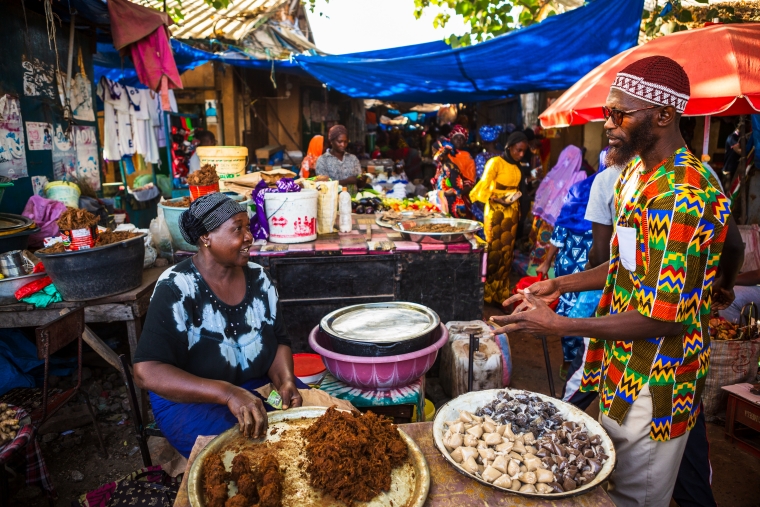Gambiaj.com – (BANJUL, The Gambia) – The African Development Bank (AfDB) Group has approved a $19.93 million grant to support a sweeping initiative aimed at reducing poverty, youth unemployment, gender inequality, and regional disparities in The Gambia. The Resilience Building – Vulnerable Youth and Women Support Project is expected to significantly improve access to basic social services, boost livelihoods, and help stabilize fragile communities.
Financed under the Prevention Envelope of the AfDB’s Transition Support Facility, the project is part of a broader strategy to intervene early in fragile contexts. The facility is specifically designed to support countries grappling with deep-rooted vulnerabilities and to prevent the escalation of instability.
“This project represents our commitment to tackling the foundational causes of fragility, poverty, exclusion, and lack of opportunity,” said Dr. Joseph Ribeiro, AfDB Deputy Director General for West Africa and Country Manager for The Gambia.
“We are acting early to prevent conflict and youth migration by fostering inclusive growth, gender equality, and institutional stability.”
Despite recent progress, The Gambia remains one of the most economically challenged countries in West Africa.
Over half the population lives below the poverty line, with rural areas like Kuntaur and Janjanbureh facing rates as high as 76%. Youth unemployment is nearly 39%, disproportionately affecting women, and food insecurity has more than doubled in just two years, affecting 29% of the population in 2023.
The newly approved project will focus on creating jobs, boosting healthcare and nutrition, improving food security, and strengthening local governance. It aims to create 1,500 new jobs and enhance the productivity of another 5,000.
At least 500 youth will receive annual technical and vocational training, while support will be provided to 500 women-led micro, small, and medium enterprises (MSMEs) and 50 women’s cooperatives.
The health component will see the rehabilitation of four primary healthcare facilities in underserved regions such as Basse, Kuntaur, and Janjanbureh. An estimated 22,000 children will benefit from enhanced nutrition monitoring, and 1,000 children suffering from acute malnutrition will receive treatment.
The project will also scale up maternal and child health services in areas with higher-than-average mortality rates.
To build resilience in the face of climate shocks, the program will invest in climate-smart agriculture, support value chain development, and provide tools and training to bolster food systems and reduce supply chain vulnerabilities.
Financial inclusion and gender equity are key pillars of the initiative. With more than three-quarters of Gambian youth lacking access to formal financial services, the project will create dedicated credit lines and business development services.
Women entrepreneurs, often hampered by limited access to capital and systemic barriers, will receive tailored support. The program will also expand initiatives to combat gender-based violence and discrimination.
Institutionally, the project will enhance government capacity to collect and analyze data, monitor fragility risks, and improve policy responses. Local governance frameworks will be strengthened to promote accountability, transparency, and citizen engagement.
Civil society will play a central role in implementing the project. In collaboration with the Association of Non-Governmental Organizations (TANGO), AfDB aims to ensure that the interventions are locally grounded and aligned with national development priorities. These groups will help facilitate community participation, monitor progress, and ensure that marginalized voices are heard.
More than just a financial lifeline, the grant is a strategic investment in stability and long-term development. It is intended to empower communities, especially youth and women, and to build a foundation for peace, inclusion, and resilience in a nation still vulnerable to economic and social shocks.
As The Gambia charts its course forward, the AfDB’s intervention signals a strong commitment to making development both inclusive and preventative—addressing root causes before they evolve into crises.










